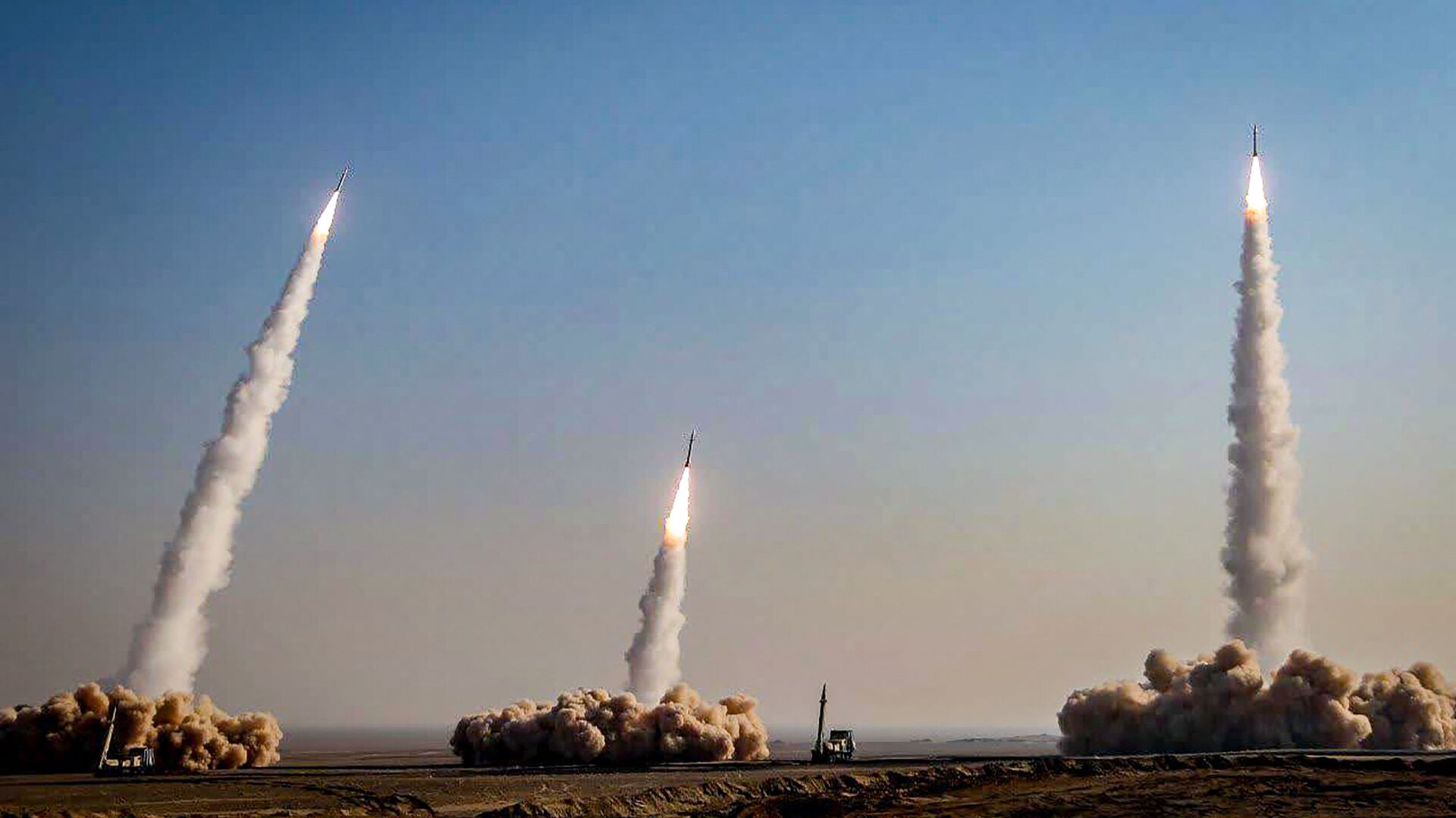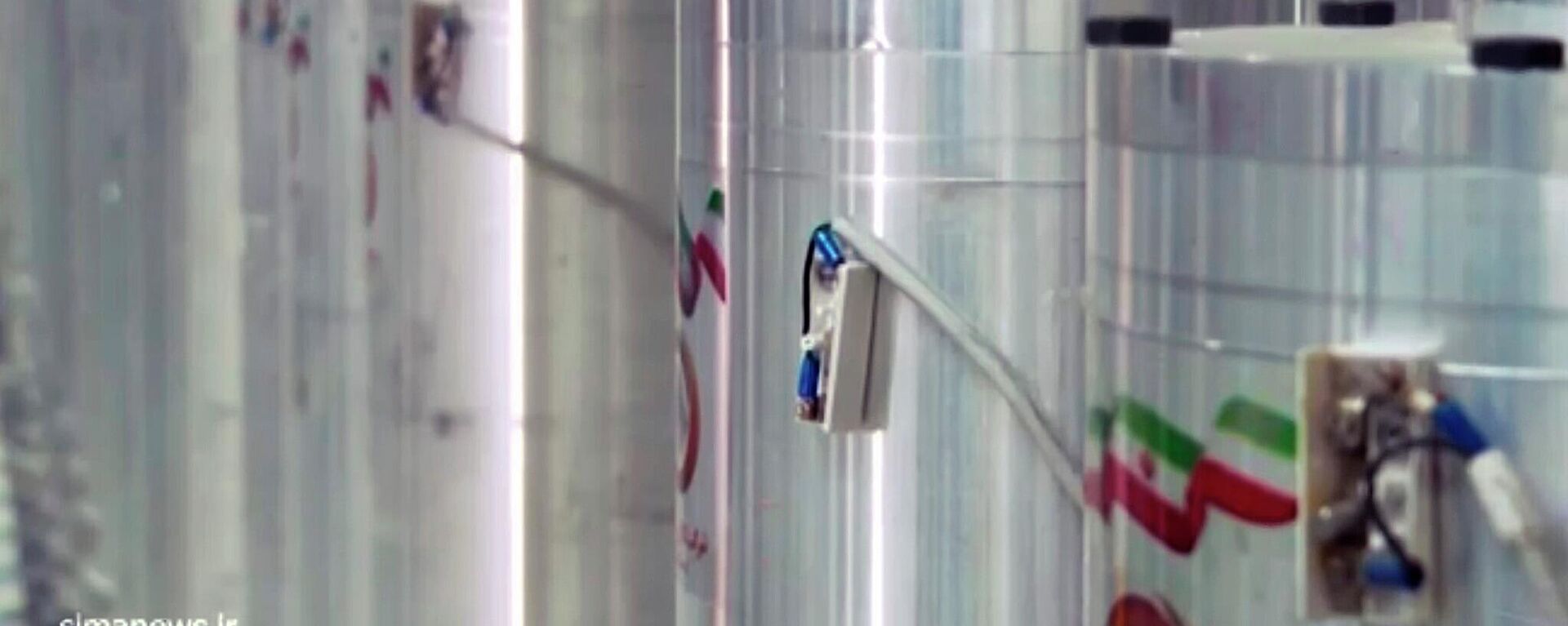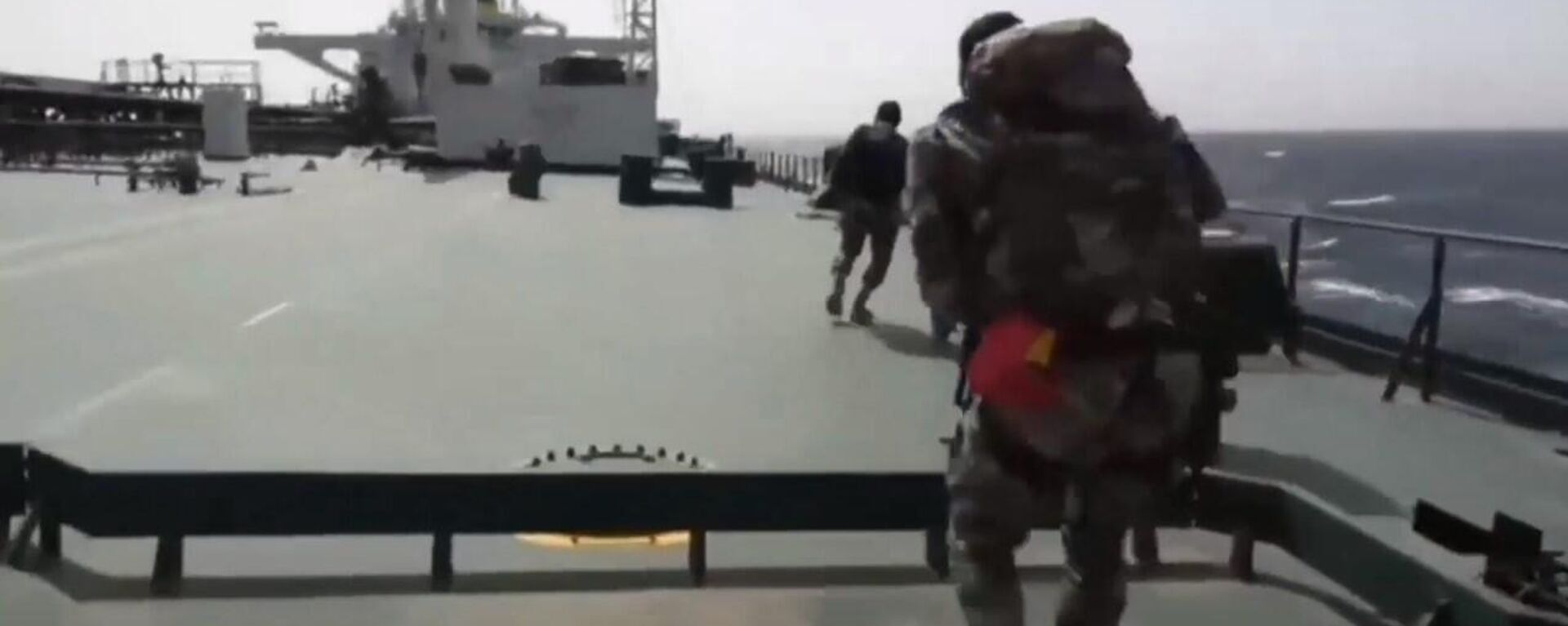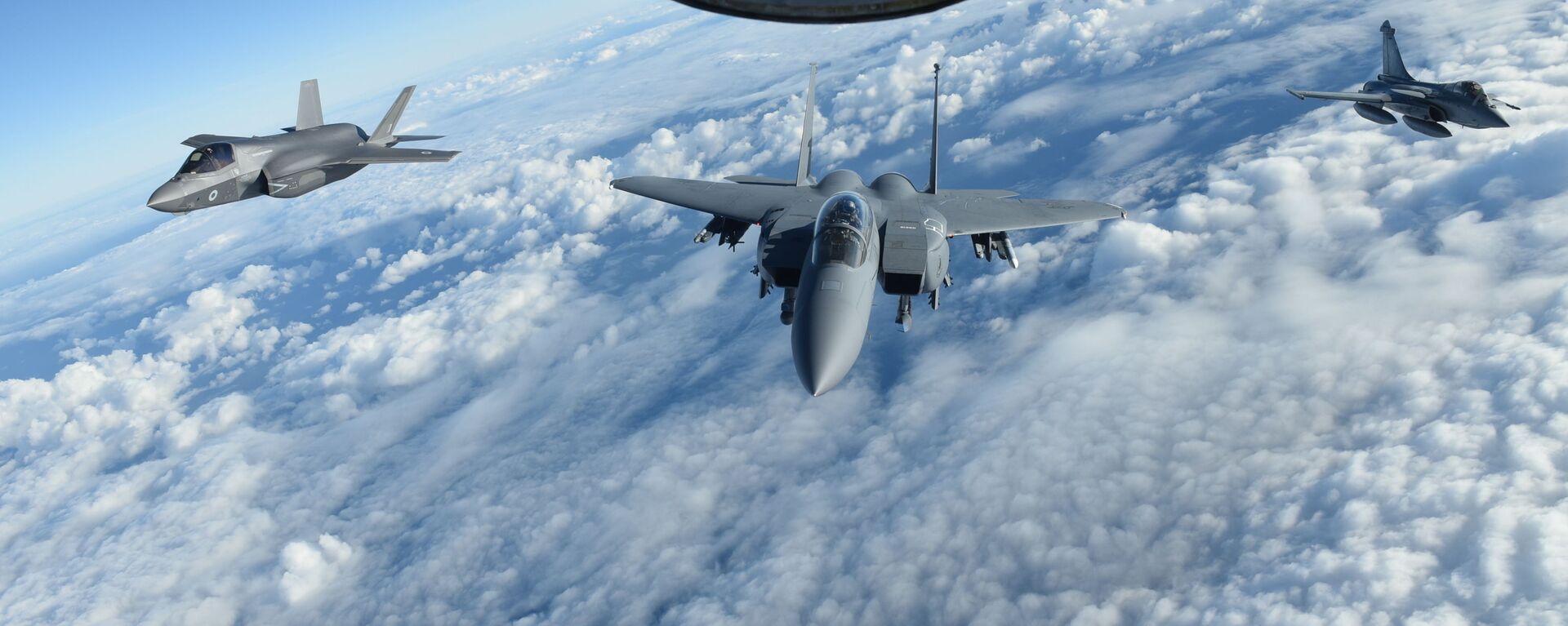https://sputnikglobe.com/20220602/iran-now-has-enough-enriched-uranium-to-build-nuke-isis-think-tank-chief-claims-1095943139.html
Iran Now Has Enough Enriched Uranium to Build Nuke, ISIS Think Tank Chief Claims
Iran Now Has Enough Enriched Uranium to Build Nuke, ISIS Think Tank Chief Claims
Sputnik International
Iran, the US, Russia, China, and major European powers have spent over a year negotiating the potential restoration of the Joint Comprehensive Plan of Action... 02.06.2022, Sputnik International
2022-06-02T11:41+0000
2022-06-02T11:41+0000
2023-01-15T17:26+0000
iran
joint comprehensive plan of action (jcpoa)
enriched uranium
israel
https://cdn1.img.sputnikglobe.com/img/07e5/04/09/1082583937_0:131:2500:1537_1920x0_80_0_0_3f1e49736040287e97457f608747f290.jpg
Iran’s nuclear breakout time – or the amount of time necessary to build a nuclear weapon, has reached “zero”, David Albright, a former United Nations weapons inspector-turned-president of the Washington-based Institute for Science and International Security (ISIS) think tank, has alleged.“If Iran wanted to further enrich its 60 percent HEU up to weapon-grade HEU, it could do so within a few weeks with only a few of its advanced centrifuge cascades”, the researchers warned.The think tank chief estimated that Iran could produce enough weapons-grade uranium to build a second nuclear device within a month, and a third within a month-and-a-half.Pointing to an International Atomic Energy Agency report on Iran’s atomic activities, which mentioned alleged undeclared nuclear material at three sites, Albright and Burkhard advised the US and its allies not to restore the JCPOA, and instead suggested that it was “time to recognise that only the toughest type of pressure, akin to that on Russia today, is going to convince Iran not to build nuclear weapons".Iran, which has long denied any plans to build a nuclear weapon, blasted the IAEA document on Tuesday as an unfair and unbalanced report which “does not reflect the reality of the negotiations between Iran and the IAEA”.Speaking to the Iran International outlet, a Saudi-sponsored Iran-related news outlet, Albright admitted that “we don’t know how quickly Iran could make nuclear weapons today”. He added, however, that “it may not be as long as some have argued”.Iranian officials dismissed the Trump administration’s pressure campaign throughout the Republican’s years in office, characterising it as a “maximum failure” of US policy and stressing that the Islamic Republic would not be bullied into submission.On Wednesday, Iranian Foreign Ministry spokesman Saeed Khatibzadeh slammed the US and its three European JCPOA allies over their newfound “concerns” about Iran’s alleged nuclear activities.“Israeli regime, as the world’s #1 JCPOA hater, happens to be an [Non-Proliferation Treaty]-denier and the only nuke possessor of the MENA region. We know this. The world knows this. Time for E3/US to stop pretending to be asleep. They can pursue diplomacy – or pursue the opposite. We’re ready for both”, Khatibzadeh wrote in a tweet.The spokesperson stressed that Iran’s nuclear programme was peaceful in nature, and accused the West of trying to use the IAEA report and the upcoming 6 June IAEA board of governors meeting as “leverage and tools” for “political games against Iran”.Iranian officials have spent over a year negotiating with the Biden administration on the restoration of the JCPOA, which Washington unilaterally ripped up in 2018. After the US left the treaty, Iran gave its French, British, German, and European Union signatories a one-year window in which to create a mechanism to defeat crushing Western sanctions. When they failed to accommodate Iran, the Islamic Republic began enriching uranium beyond the limits outlined by the JCPOA. Tehran has vowed to reduce its enrichment activities if the agreement was restored.Israel, which heavily lobbied Trump to get out of the JCPOA, has repeatedly warned that it will not abide by any renewed agreement on the Islamic Republic’s nuclear programme, and has threatened to take unilateral action up to and including air and missile strikes on Iran, notwithstanding publicly voiced concerns from some former officials about Iran’s inevitable response.
https://sputnikglobe.com/20220531/unfair-and-unbalanced-tehran-slams-iaeas-new-report-on-irans-nuclear-programme-1095896070.html
https://sputnikglobe.com/20220531/watch-irans-forces-seizing-greece-tankers-over-maritime-violations-1095898135.html
https://sputnikglobe.com/20220518/us-tankers-will-refuel-israeli-jets-simulating-strikes-on-iran-report-1095609458.html
iran
israel
Sputnik International
feedback@sputniknews.com
+74956456601
MIA „Rossiya Segodnya“
2022
News
en_EN
Sputnik International
feedback@sputniknews.com
+74956456601
MIA „Rossiya Segodnya“
Sputnik International
feedback@sputniknews.com
+74956456601
MIA „Rossiya Segodnya“
iran, joint comprehensive plan of action (jcpoa), enriched uranium, israel
iran, joint comprehensive plan of action (jcpoa), enriched uranium, israel
Iran Now Has Enough Enriched Uranium to Build Nuke, ISIS Think Tank Chief Claims
11:41 GMT 02.06.2022 (Updated: 17:26 GMT 15.01.2023) Iran, the US, Russia, China, and major European powers have spent over a year negotiating the potential restoration of the Joint Comprehensive Plan of Action (JCPOA) – the 2015 Iran nuclear deal which the US unilaterally walked out on in 2018. The talks hit a roadblock after the US redesignated Iran’s Revolutionary Guards as a “terrorist” group.
Iran’s nuclear breakout time – or the amount of time necessary to build a nuclear weapon, has reached “zero”, David Albright, a former United Nations weapons inspector-turned-president of the Washington-based Institute for Science and International Security (ISIS) think tank, has alleged.
“Iran has crossed a new, dangerous threshold; Iran’s breakout timeline is now at zero. It has enough 60 percent enriched uranium or highly enriched uranium (HUE) to be assured it could fashion a nuclear explosive”, Albright and ISIS fellow Sarah Burkhard wrote in a report on the neoconservative think tank’s website on Wednesday.
“If Iran wanted to further enrich its 60 percent HEU up to weapon-grade HEU, it could do so within a few weeks with only a few of its advanced centrifuge cascades”, the researchers warned.
The think tank chief estimated that Iran could produce enough weapons-grade uranium to build a second nuclear device within a month, and a third within a month-and-a-half.
Pointing to an International Atomic Energy Agency report on Iran’s atomic activities, which mentioned alleged undeclared nuclear material at three sites, Albright and Burkhard advised the US and its allies not to restore the JCPOA, and instead suggested that it was “time to recognise that only the toughest type of pressure, akin to that on Russia today, is going to convince Iran not to build nuclear weapons".
Iran, which has long denied any plans to build a nuclear weapon,
blasted the IAEA document on Tuesday as an unfair and unbalanced report which “does not reflect the reality of the negotiations between Iran and the IAEA”.
Speaking to the Iran International outlet, a Saudi-sponsored Iran-related news outlet, Albright
admitted that “we don’t know how quickly Iran could make nuclear weapons today”. He added, however, that “it may not be as long as some have argued”.
“They may choose to make a crude nuclear explosive to detonate underground, or to deliver it crudely through crude methods like truck or ship. That could happen over the course of several months, less than six months. They may want, on the other hand, to focus on just building a warhead for a ballistic missile; that could take longer, a year or two. So again, the critical thing is that they have reached the zero-breakout time”, the ISIS founder said. He recommended an international campaign of pressure against Iran akin to Donald Trump’s “maximum pressure” campaign, but “much more” severe.
Iranian officials dismissed the Trump administration’s pressure campaign throughout the Republican’s years in office, characterising it as a
“maximum failure” of US policy and stressing that the Islamic Republic would not be bullied into submission.
On Wednesday, Iranian Foreign Ministry spokesman Saeed Khatibzadeh slammed the US and its three European JCPOA allies over their newfound “concerns” about Iran’s alleged nuclear activities.
“Israeli regime, as the world’s #1 JCPOA hater, happens to be an [Non-Proliferation Treaty]-denier and the only nuke possessor of the MENA region. We know this. The world knows this. Time for E3/US to stop pretending to be asleep. They can pursue diplomacy – or pursue the opposite. We’re ready for both”, Khatibzadeh
wrote in a tweet.
The spokesperson
stressed that Iran’s nuclear programme was peaceful in nature, and accused the West of trying to use the IAEA report and the upcoming 6 June IAEA board of governors meeting as “leverage and tools” for “political games against Iran”.
Iranian officials have spent over a year negotiating with the Biden administration on the restoration of the JCPOA, which Washington unilaterally ripped up in 2018. After the US left the treaty, Iran gave its French, British, German, and European Union signatories a one-year window in which to create a mechanism to defeat crushing Western sanctions. When they failed to accommodate Iran, the Islamic Republic began enriching uranium beyond the limits outlined by the JCPOA. Tehran has vowed to reduce its enrichment activities if the agreement was restored.
Israel, which
heavily lobbied Trump to get out of the JCPOA, has repeatedly warned that it will not abide by any renewed agreement on the Islamic Republic’s nuclear programme, and has threatened to take unilateral action up to and including air and missile strikes on Iran, notwithstanding
publicly voiced concerns from some former officials about Iran’s inevitable response.




